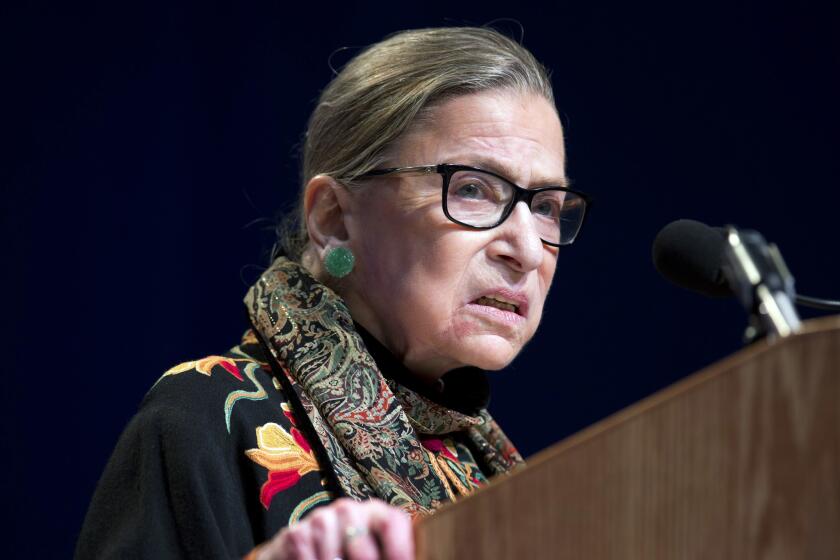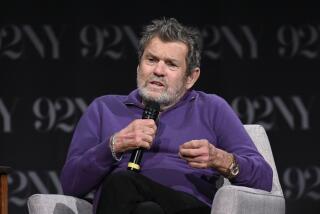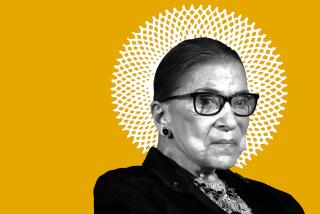Katie Couric scrapped RBG’s remarks on national anthem protests to ‘protect’ her

- Share via
In 2016, late Supreme Court Justice Ruth Bader Ginsburg drew sharp criticism for calling national anthem protests “dumb and disrespectful” in an interview with veteran journalist Katie Couric.
But that wasn’t all she said, according to Couric, who admits in her forthcoming memoir to concealing some of Ginsburg’s remarks about kneeling during the anthem in an effort to shield her from further scrutiny.
According to excerpts from Couric’s “Going There,” released Wednesday by the Daily Mail, Ginsburg told her that the act of taking a knee during the anthem — started by activist and former NFL player Colin Kaepernick to protest racial injustice — showed “contempt for a government that has made it possible for their parents and grandparents to live a decent life.”
“Which they probably could not have lived in the places they came from,” the justice added, according to Couric. “[A]s they became older they realize that this was youthful folly. And that’s why education is important.”
Supreme Court Justice Ruth Bader Ginsburg has called the protests of football players who decline to stand for the national anthem “dumb and disrespectful.”
After the interview, Couric reveals in her book, a representative for Ginsburg requested she remove the feminist hero’s answer about the anthem demonstrations. Couric recalls asking two colleagues — New York Times columnist David Brooks and former President of ABC News David Westin — for their advice on how to handle the situation.
According to the Daily Mail, Brooks advised Couric to delete the remarks because Ginsburg, who was 83 at the time, was “elderly and probably didn’t fully understand the question.” Westin, on the other hand, suggested she include them because “people should hear what she thinks” as a member of the highest court in the land.
Couric ultimately opted to publish a partial version of Ginsburg’s response, while omitting comments she deemed “unworthy of a crusader for equality” such as Ginsburg, who died last year after battling cancer for more than a decade.
For the second time in recent months, Supreme Court Justice Ruth Bader Ginsburg voiced regret for unwisely sounding off in an interview.
Defending her decision, Couric writes in her memoir that she “wanted to protect” Ginsburg from criticism, as she considered the subject of racial justice “a blind spot” for the left-leaning RBG, who graduated top of her class at Columbia Law School and served 27 years on the Supreme Court.
Couric concedes in the book, however, that she “lost a lot of sleep over this one” and still grapples with the choice she made. Despite Couric’s edits, the conversation with Ginsburg sparked a backlash, prompting the justice to walk back her remarks.
“Some of you have inquired about a book interview in which I was asked how I felt about Colin Kaepernick and other NFL players who refused to stand for the national anthem,” Ginsburg said at the time.
“Barely aware of the incident or its purpose, my comments were inappropriately dismissive and harsh. I should have declined to respond.”
Couric’s “Going There” hits shelves Oct. 26.
More to Read
Sign up for our Book Club newsletter
Get the latest news, events and more from the Los Angeles Times Book Club, and help us get L.A. reading and talking.
You may occasionally receive promotional content from the Los Angeles Times.












